Ever hear strange knocking sounds echoing through your walls, even though no one’s using the sink or shower? You pause, listen again, and realize the pipes are making noise on their own. It’s confusing, maybe even a little worrying, especially when you can’t figure out why it’s happening or if something’s about to break.
In this post, we’ll dive into what causes knocking pipes when water is not running and what you can do to stop it. You’ll learn the most common reasons behind the noise, how to fix it yourself, and when it’s time to call in a plumber. Let’s make sense of those mysterious pipe sounds once and for all.
What Causes Knocking Pipes When Water Is Not Running?
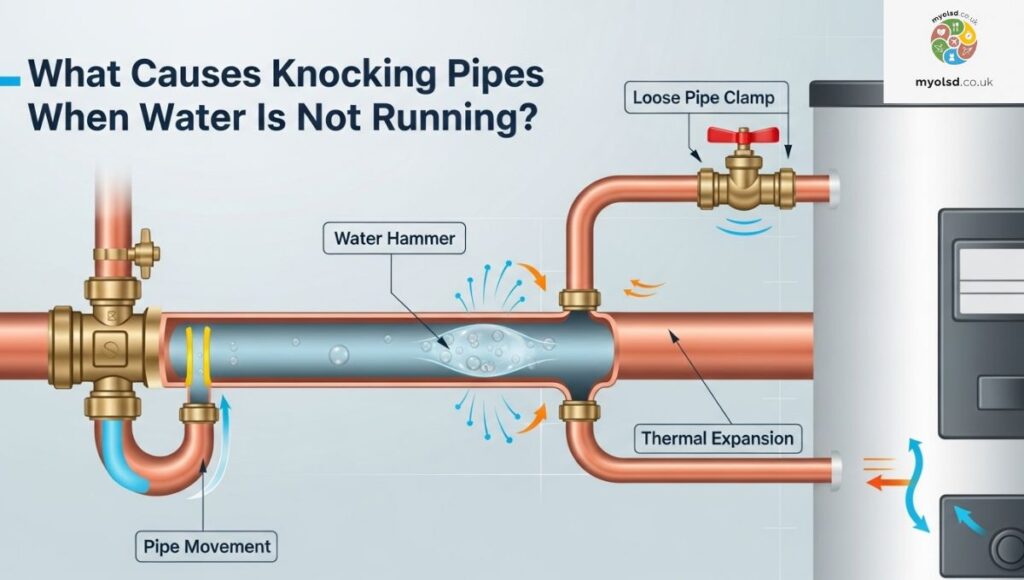
When you hear your pipes making noises while no faucets are open, it’s usually a sign of a pressure imbalance or trapped air inside your plumbing system. Let’s look at the most common culprits behind this issue.
1. Water Hammer
One of the top causes of knocking pipes when water is not running is a phenomenon called water hammer. It happens when fast-moving water suddenly stops or changes direction, like when you turn off a tap or a valve closes quickly. The momentum of that moving water creates a shockwave that travels through the pipes, resulting in a loud bang or thud. Over time, these shockwaves can damage pipe joints, valves, and fittings if not fixed properly.
2. Thermal Expansion
Thermal expansion occurs when hot water pipes expand and contract as water heats and cools. This subtle movement can cause pipes to rub against surrounding surfaces, creating a tapping or knocking noise. It’s especially common when hot water is used frequently, for example, during showers or laundry cycles.
3. Loose Pipes
Pipes that aren’t securely fastened can vibrate or hit nearby framing, producing a loud banging sound. Even minor vibrations can create noticeable noise, especially in older homes where pipe clamps or hangers may have loosened over time. Tightening and securing these pipes often solves the problem.
4. Sediment Buildup
If your water heater or pipes contain built-up sediment, it can disrupt normal water flow. When water tries to move around the debris, it may cause strange gurgling, rumbling, or knocking noises. Flushing the system regularly helps maintain smooth operation and reduces plumbing noise.
5. Air in the Pipes
Trapped air pockets inside the plumbing system can make pipes vibrate or produce a thudding sound. Air can get trapped due to maintenance, low water pressure, or partial blockages. Bleeding the plumbing system removes these air pockets, restoring normal flow and silence.
Read more Article: Gums Hurt When Flossing?
Diagnosing the Knocking Sound
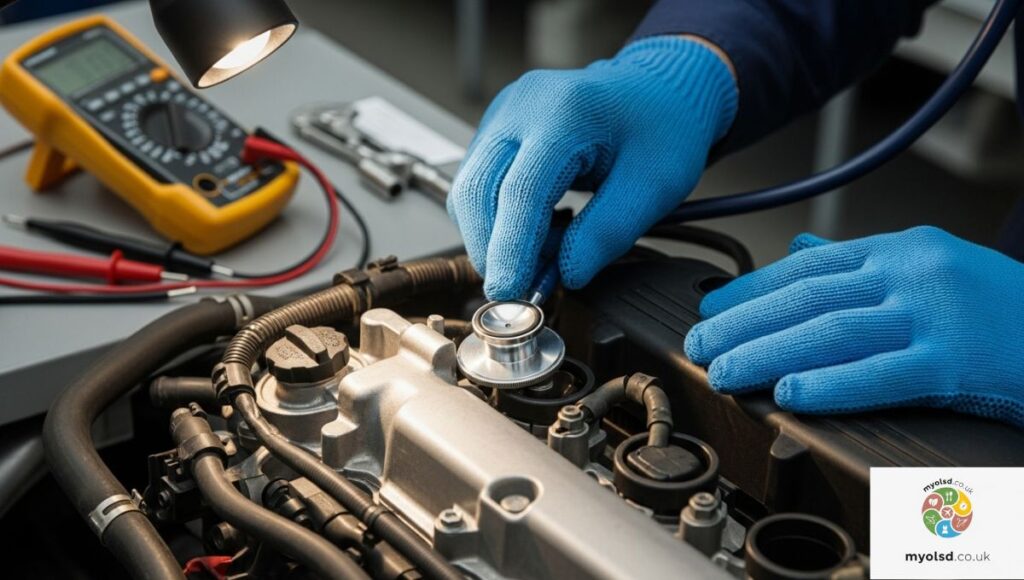
Finding the true cause of knocking pipes takes a bit of observation and inspection. Here’s how you can narrow it down.
1. Determine the Source of the Noise
Listen carefully does the knocking come from a specific wall, ceiling, or room? If the sound happens near your water heater or main supply line, it may point to pressure fluctuations or thermal expansion.
2. Check for Loose Pipes
Inspect visible pipes in basements, crawl spaces, or under sinks. Gently tap them — if you notice movement or rattling, they may not be secured properly. Using pipe clamps, padding, or insulation can stop the vibration instantly.
3. Inspect for Water Hammer
If you hear a sharp bang right after turning off a faucet or appliance, water hammer is likely the cause. In that case, a water hammer arrestor or pressure-reducing valve may be needed to stabilize the pressure in your home’s water system.
Solutions for Knocking Pipes
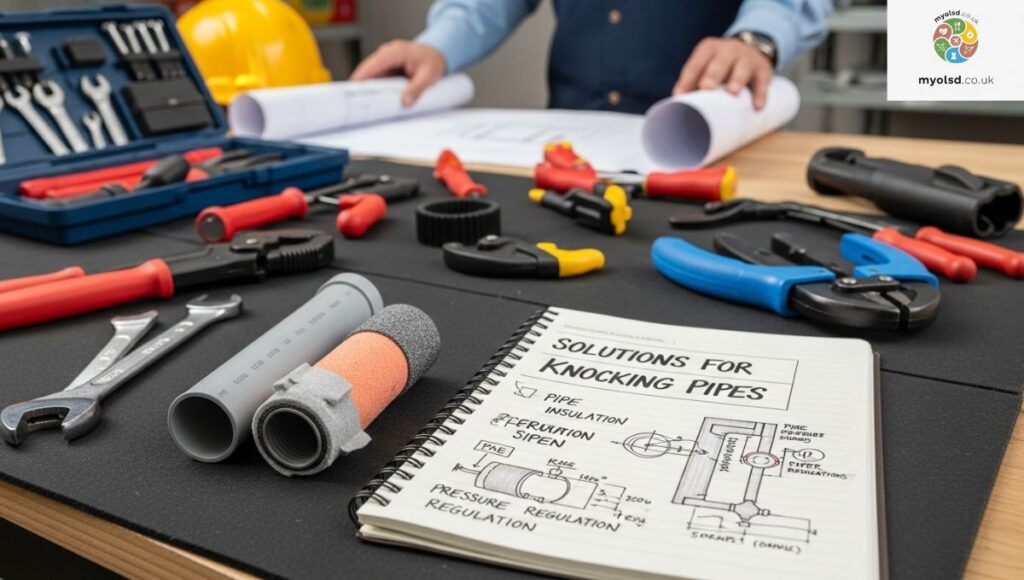
Now that you know what’s causing the noise, here are practical ways to fix it.
1. Install a Water Hammer Arrestor
A water hammer arrestor is a small device that absorbs shockwaves inside your plumbing lines. It acts like a cushion, preventing pressure spikes that cause banging sounds. It’s a simple but effective long-term solution.
2. Add Pipe Insulation
Insulating your pipes not only helps with temperature control but also reduces metal expansion noise and pipe vibration. Foam pipe sleeves or insulation wraps are inexpensive and easy to install.
3. Secure Loose Pipes
Use pipe clamps, straps, or hangers to fasten any pipes that move or shake. Make sure they’re snug but not overly tight you don’t want to restrict normal thermal movement.
4. Flush the Water Heater
Over time, sediment buildup at the bottom of your water heater can create rumbling or knocking sounds. Flushing it out once or twice a year improves efficiency and minimizes plumbing noise.
5. Bleed the Plumbing System
To remove air pockets, turn off the main water supply and open all faucets in your home, starting from the highest point to the lowest. Let the water flow until no more sputtering occurs, then close them in reverse order. This simple air bleed method can restore quiet pipes.
Leave It to the Professionals
If you’ve tried the above solutions but still hear knocking or banging, it’s best to call a professional plumber. Persistent noise might indicate deeper issues such as pressure tank cycling, water hammer effect, or even hidden leaks behind walls. A plumbing expert can diagnose the exact cause using specialized tools and perform lasting repairs.
Read more Article: Gums Hurt When Flossing?
Loud Bangs By Pipes
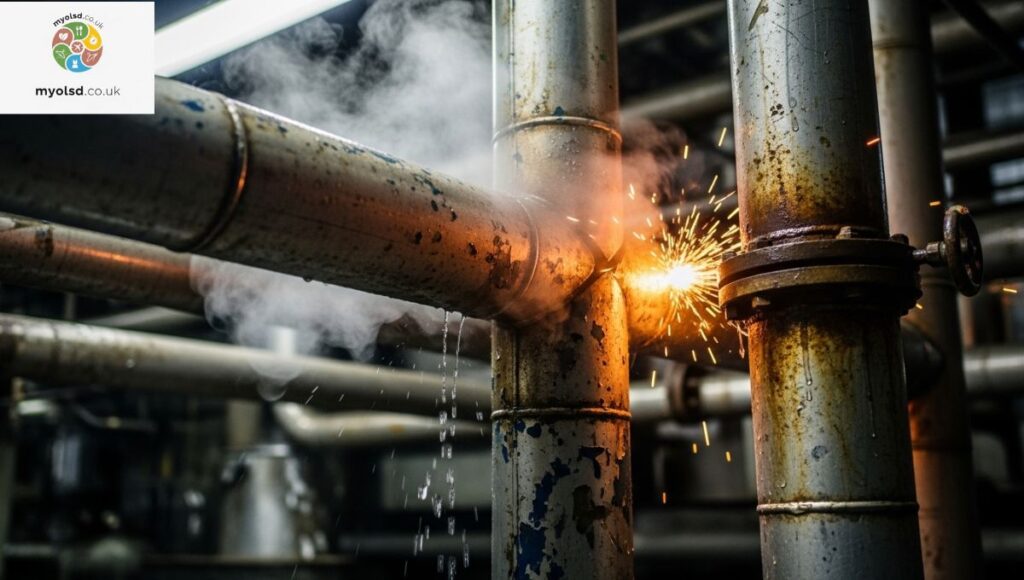
Hearing loud bangs from your plumbing system can be alarming, but the causes are usually mechanical or pressure-related.
Primary Causes of the Banging Noise in Pipes
The most common culprits include high water pressure, loose fixtures, and air trapped in pipes. In some cases, drain blockages or thermal expansion can amplify the sound.
How To Check For Faults In The Plumbing System
Look for vibrating pipes, loose joints, or signs of leakage. If you suspect water hammer, check your pressure gauge it should read between 60 to 80 psi. Anything above that can cause damage over time.
How To Stop Your Pipes From Banging
Start by securing exposed pipes and installing water hammer arrestors. If the issue persists, lower the water pressure slightly using a pressure-reducing valve.
An Effective Method To Get Rid Of Noise In Pipes
If you can’t pinpoint the exact location, consider having a plumber perform a plumbing inspection with acoustic sensors or thermal cameras. This helps locate internal vibrations and friction points that cause the sound.
Read more Article: Gums Hurt When Flossing?
The Water Hammer
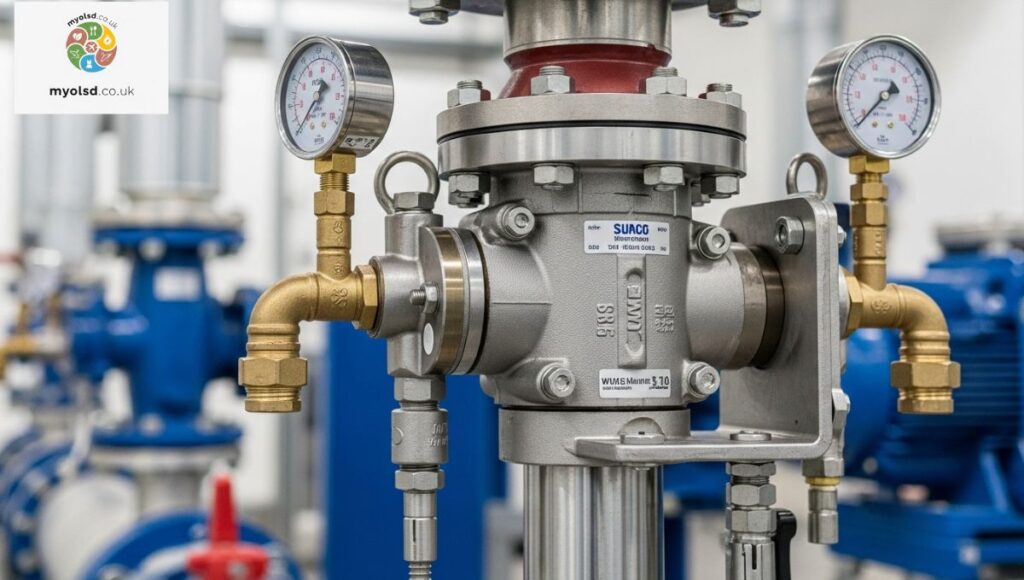
How to Stop a Water Hammer
To fix water hammer, first install a water hammer arrestor near the problem area. If that doesn’t work, you may need to drain your plumbing system to remove trapped air and adjust the water pressure regulator.
Devices Used to Fix a Water Hammer
- Water hammer arrestors
- Expansion tanks
- Air chambers
- Pressure-reducing valves
These devices absorb excess energy and help stabilize your home plumbing system.
Some Major Causes of Banging Sounds
- Copper pipes and bangs: Metal pipes expand and contract with temperature changes.
- High-pitched whining noises: Could come from partially closed valves or worn-out washers.
- Drains making gurgling sounds: Usually a sign of an airlock or a drain blockage.
If you hear multiple types of noises, the problem might involve more than one factor, such as both water hammer and thermal expansion.
How To Fix Loud Noises in Water Pipes
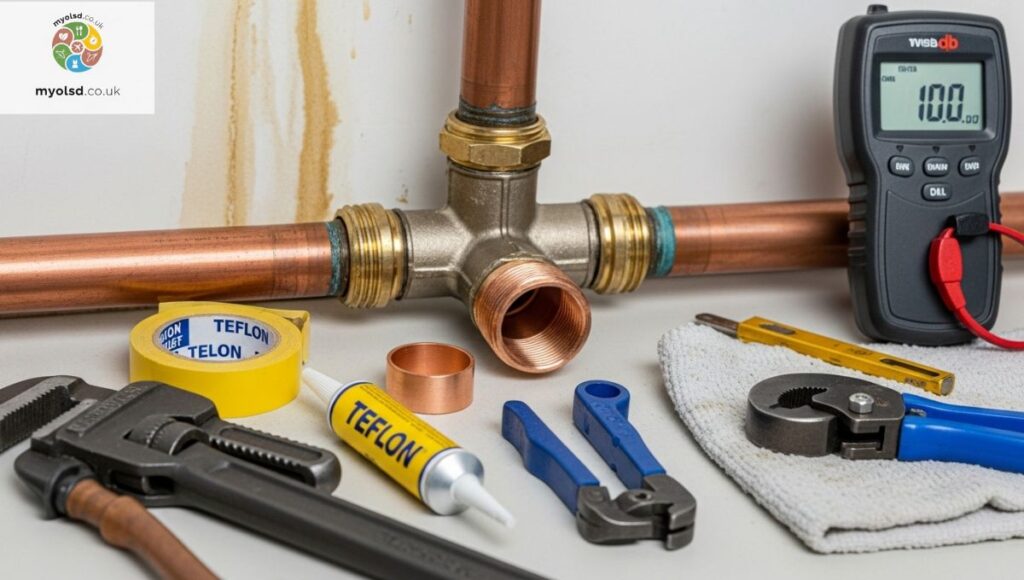
You can fix noisy pipes by:
- Checking valves and fittings for looseness
- Insulating hot and cold lines
- Reducing high pressure
- Bleeding air from the system
If the sound continues, professional plumbing maintenance may be needed.
Do You Hear Your Pipes Banging Constantly?
If the noise is frequent, your water heater or pressure tank might be cycling too often. Have a professional check for pressure fluctuations or faulty valves. Early diagnosis prevents long-term damage.
Knocking Pipes When Water Is Not Running? (Solved)
Still hearing knocking pipes when water is not running? Here’s a quick recap and fix guide.
Why Do I Hear Knocking Pipes When Water Is Not Running?
- Thermal expansion — hot pipes expanding and contracting.
- Water hammer — sudden stoppage of water flow.
- Loose pipes — vibration against framing.
- Air in the pipes — trapped pockets causing noise.
- Pressure tank cycling — pressure changes triggering vibrations.
How To Fix Knocking Pipe Sounds
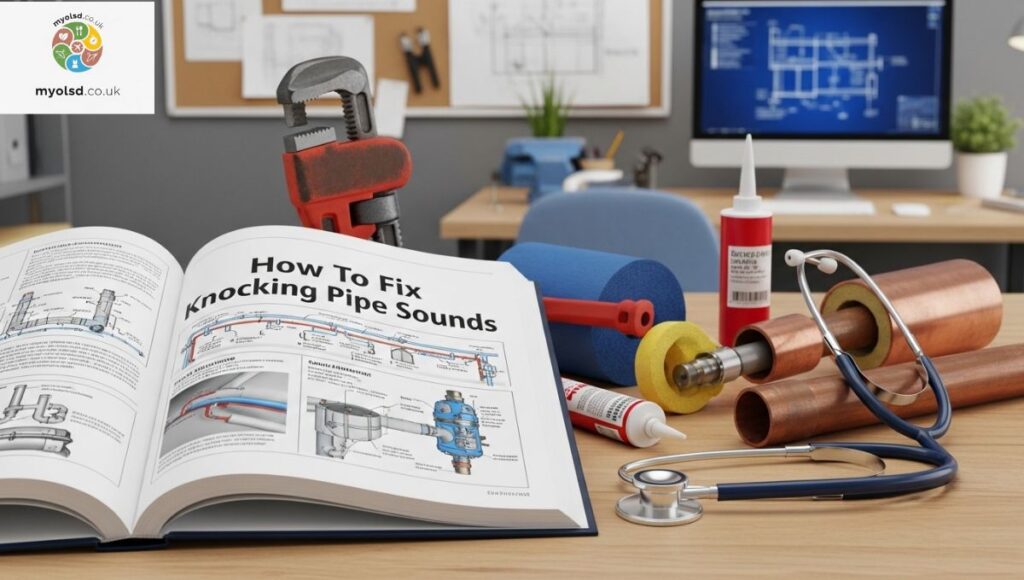
- Check for leaks
- Drain the system
- Secure loose pipes
- Inspect water pressure
- Install or recharge water hammer arrestors
If the problem persists, call a plumber to diagnose deeper issues, such as internal pipe damage or a pressure imbalance.
Bottom Line
Knocking pipes when water is not running might sound mysterious, but water pressure fluctuations, trapped air, or unsecured plumbing lines usually cause it. By following the steps above or calling in a professional when needed, you can restore peace to your home.
Regular plumbing maintenance, pipe insulation, and pressure monitoring go a long way toward preventing future knocking sounds.
FAQs
1. Why are my pipes banging when not in use?
That banging sound usually means there’s trapped air, loose fittings, or a water hammer effect inside your plumbing system. Even when no taps are running, pressure changes can cause pipes to move or vibrate.
2. Should I worry about knocking pipes?
Yes, you should. Knocking pipes can damage joints, valves, and fittings over time if ignored. It’s best to inspect for loose pipes, high water pressure, or call a plumber to prevent bigger issues.
3. How do I stop my pipes from knocking?
You can stop the knocking by securing loose pipes, bleeding air from the system, or installing a water hammer arrestor. Also, check your water pressure and flush the heater if sediment buildup is suspected.
4. Is it normal to hear water running through pipes when nothing is on?
No, it’s not normal. If you hear running water when all faucets are closed, you may have a hidden leak or pressure issue in your plumbing system that needs immediate attention.
5. Can a water hammer happen randomly?
Yes. A water hammer can occur suddenly when valves close too fast or when pressure in your plumbing system fluctuates. Installing a pressure-reducing valve can help control it.
6. How do I know if my water pipe is leaking underground?
Watch for signs like unexplained wet spots, higher water bills, or low water pressure. You might also hear a faint hissing or running water sound even when everything is turned off.

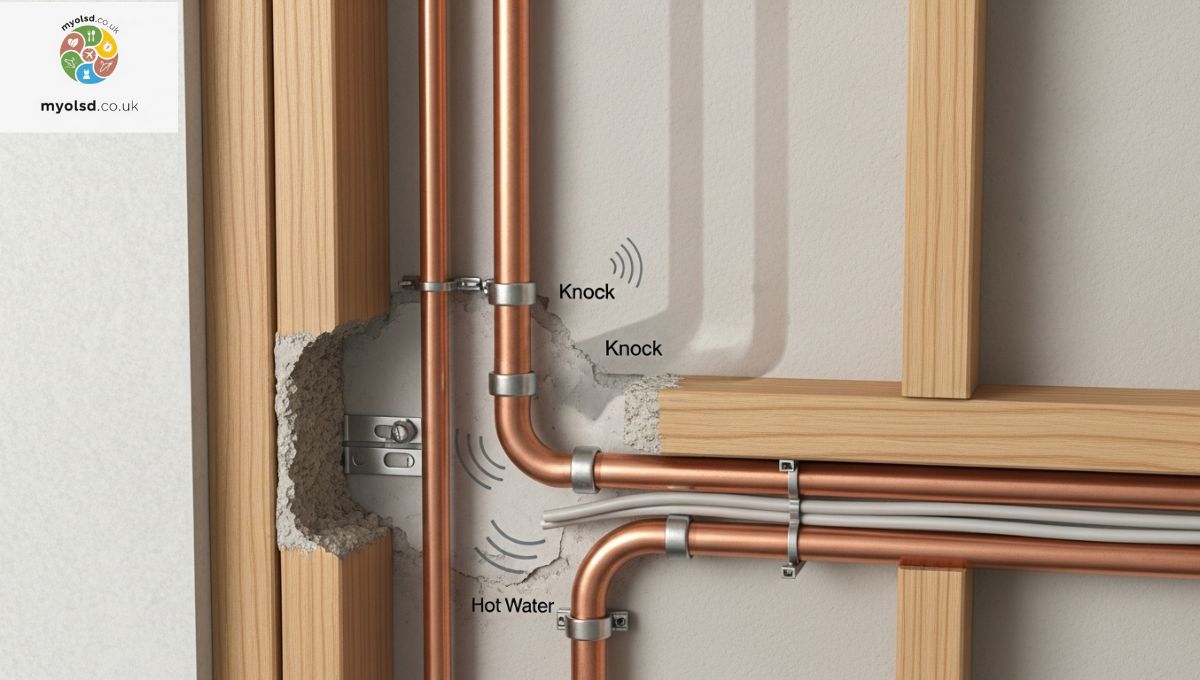
ookp7k